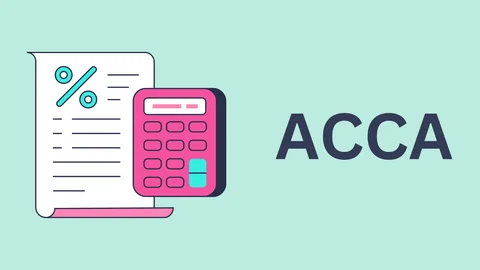Finance
Top Financial Planning Tips for 2024

Effective financial planning is essential for achieving your life goals, whether it’s buying a home, saving for your children’s education, or preparing for retirement. As we enter 2024, financial landscapes continue to evolve, bringing new challenges and opportunities. This article will explore the top financial planning tips for 2024, guiding you on how to build a strong financial foundation, adjust to changes, and achieve greater financial security. With a focus on simple and actionable advice, we aim to help everyone—no matter their financial situation—improve their financial well-being.
1. Set Clear Financial Goals
Before you can create a financial plan, it is important to set clear and specific goals. Your financial goals might include short-term objectives, such as saving for a vacation or emergency fund, as well as long-term goals, such as buying a house or planning for retirement.
Key Considerations:
- SMART goals: Ensure that your goals are Specific, Measurable, Achievable, Relevant, and Time-bound.
- Prioritization: Rank your goals by importance and set timelines for achieving them. This will help guide your savings and investment decisions.
When you set clear goals, you gain focus and direction, which will ultimately make it easier to stick to your financial plan.
2. Create and Stick to a Budget
Budgeting is a cornerstone of financial planning, as it gives you control over your income and expenses. It allows you to track where your money is going and helps prevent overspending.
Steps for Effective Budgeting:
- Track income and expenses: Use apps or spreadsheets to record your monthly income and expenditures.
- Distinguish between needs and wants: Prioritize essential expenses, such as housing, utilities, groceries, and healthcare.
- Allocate for savings and investments: Aim to save at least 20% of your income, allocating part of it to investments for long-term growth.
Sticking to a budget in 2024 will help you avoid debt and ensure you are saving enough to meet your future goals.
3. Build an Emergency Fund
An emergency fund is crucial for financial security. This fund acts as a buffer, allowing you to cover unexpected expenses, such as medical emergencies or job loss, without resorting to debt.
Recommendations for Emergency Fund:
- Size of fund: Aim to save at least 3 to 6 months’ worth of living expenses.
- Accessibility: Keep your emergency fund in a liquid, easily accessible account, such as a savings account or money market fund.
- Regular contributions: Set up automatic transfers to your emergency fund to ensure steady growth.
By building an emergency fund, you create a financial safety net that helps protect against unforeseen financial challenges in 2024.
4. Pay Down Debt Strategically
Debt can be a significant obstacle to financial freedom. In 2024, it’s essential to focus on reducing high-interest debt, such as credit card balances or personal loans, as they can quickly spiral out of control.
Debt Management Tips:
- Prioritize high-interest debt: Use the avalanche method (paying off high-interest debts first) to minimize interest payments.
- Consolidate loans: Consider consolidating your debts into a single loan with a lower interest rate to simplify payments and reduce costs.
- Avoid new debt: Be mindful of taking on new debt, especially for non-essential purchases.
Strategically managing and reducing debt is a key step toward achieving financial freedom in 2024.
5. Invest for Long-Term Growth
Investing is essential for building wealth over time, as it allows your money to grow at a rate higher than inflation. With the right investment strategy, you can achieve your long-term financial goals faster.
Investment Strategies for 2024:
- Diversify your portfolio: Spread your investments across a variety of asset classes, such as stocks, bonds, and real estate, to reduce risk.
- Automate contributions: Set up automatic monthly contributions to your investment accounts to build wealth consistently.
- Risk tolerance: Align your investment choices with your risk tolerance and financial goals. Younger investors might focus on growth stocks, while those nearing retirement may prioritize stability through bonds or dividend-paying stocks.
By investing for the long term, you can take advantage of compound interest and maximize your financial growth potential in 2024.
6. Plan for Retirement Early

https://media.istockphoto.com
The earlier you start planning for retirement, the better. Even if retirement seems far away, saving now ensures that you have enough money to live comfortably when the time comes.
Retirement Planning Tips:
- Maximize employer contributions: If your employer offers a retirement plan, such as a 401(k) with matching contributions, aim to contribute enough to receive the full match.
- Consider tax-advantaged accounts: Invest in accounts like IRAs or Roth IRAs, which offer tax benefits that can significantly enhance your savings.
- Increase contributions annually: Whenever your income rises (e.g., from a promotion or bonus), increase your retirement contributions to accelerate growth.
With careful retirement planning, you can enjoy financial independence during your retirement years.
7. Monitor and Adjust Your Financial Plan Regularly
Financial planning is not a set-it-and-forget-it process. In 2024, you should regularly review and adjust your financial plan to accommodate changes in your income, expenses, or financial goals.
Tips for Reviewing Your Plan:
- Annual check-ups: Schedule a yearly review of your budget, savings, investments, and goals.
- Track progress: Monitor your progress toward achieving financial goals, and make adjustments as needed.
- Be flexible: Life changes such as a new job, marriage, or the birth of a child may require you to revise your financial plan.
By continuously monitoring and adjusting your financial plan, you stay on track to achieve your goals, no matter what life throws your way.
Analysis Table
| Financial Planning Tip | Key Actions | Benefits |
|---|---|---|
| Set Clear Financial Goals | Define SMART goals, prioritize objectives | Provides focus and direction |
| Create a Budget | Track expenses, differentiate needs vs. wants | Avoids overspending, ensures savings |
| Build an Emergency Fund | Save 3-6 months of expenses, use accessible accounts | Financial security during emergencies |
| Pay Down Debt Strategically | Prioritize high-interest debt, consolidate loans | Reduces financial burden, minimizes interest |
| Invest for Long-Term Growth | Diversify, automate contributions, assess risk | Builds wealth, maximizes returns |
| Plan for Retirement Early | Contribute to employer plans, use IRAs | Ensures financial independence in retirement |
| Regularly Monitor Plan | Annual check-ups, track progress, adjust as needed | Keeps finances aligned with goals |
| Seek Professional Advice | Work with a financial advisor | Provides expert guidance, reduces stress |
Comparative Table
| Tip | Short-Term Impact | Long-Term Impact |
|---|---|---|
| Set Clear Financial Goals | Provides immediate clarity on priorities | Keeps you focused on achieving long-term goals |
| Create a Budget | Helps manage current spending | Builds disciplined financial habits |
| Build an Emergency Fund | Offers quick financial security in crises | Reduces reliance on debt for emergencies |
| Pay Down Debt Strategically | Frees up cash flow quickly | Improves credit score and long-term financial health |
| Invest for Long-Term Growth | Limited immediate returns | Significant wealth accumulation over time |
| Plan for Retirement Early | Limited short-term effect on lifestyle | Ensures comfortable and financially secure retirement |
| Regularly Monitor Plan | Allows immediate adjustments to changes | Maintains alignment with evolving goals |
| Seek Professional Financial Advice | Offers instant guidance on complex decisions | Helps build a robust, tailored financial strategy |
8. Consider Professional Financial Advice
If managing your finances seems overwhelming or you’re unsure how to reach your goals, consider seeking advice from a financial advisor. A professional can provide personalized guidance and help you make more informed decisions about your money.
Benefits of Professional Financial Advice:
- Customized plans: A financial advisor can help create a plan that aligns with your unique financial situation and goals.
- Tax optimization: Advisors can offer strategies to minimize your tax liability and maximize your savings.
- Peace of mind: Having an expert manage your finances can reduce stress and provide confidence that you’re on the right track.
Consulting with a financial professional in 2024 can make a significant difference in achieving your financial aspirations.
9. Prioritize Health and Insurance Coverage
Health is one of the most significant areas of financial planning that often goes overlooked. Medical emergencies can be expensive, and without proper insurance, they can derail your financial plans. In 2024, health and insurance coverage should be key priorities.
Insurance Planning Tips:
- Health insurance: Ensure that you have adequate health insurance coverage that suits your needs, whether through an employer or a personal plan.
- Life and disability insurance: Consider life insurance if you have dependents, and disability insurance to cover loss of income in case of an illness or injury.
- Regular check-ups: Preventive healthcare measures can help you avoid costly treatments down the road, making health and wellness a sound financial investment.
By prioritizing health and insurance, you can safeguard both your well-being and financial stability.
10. Tax Planning for Maximum Savings
Tax planning is another essential element of financial planning. In 2024, tax laws may have changed, so it’s important to stay up to date on the latest regulations to maximize your savings and minimize your liabilities.
Effective Tax Planning Tips:
- Take advantage of tax deductions and credits: Ensure you claim all available deductions, such as for retirement contributions or educational expenses, and credits like the Earned Income Tax Credit.
- Optimize retirement account contributions: Contributions to 401(k)s, IRAs, and Health Savings Accounts (HSAs) are often tax-deferred, allowing you to reduce your taxable income.
- Plan for capital gains: Strategically selling investments can help you lower capital gains taxes, especially if you can offset gains with losses.
By optimizing your tax strategy, you can ensure more of your income stays in your pocket, helping you reach your financial goals faster.
11. Protect Your Wealth with Estate Planning
Estate planning isn’t just for the wealthy—it’s an important step for anyone looking to protect their assets and ensure their loved ones are cared for after they’re gone. In 2024, setting up an estate plan can give you peace of mind.
Estate Planning Essentials:
- Create a will: A will ensures your assets are distributed according to your wishes and that minor children have designated guardians.
- Set up a trust: Trusts can help protect your assets and avoid the lengthy probate process.
- Review beneficiaries: Ensure that your beneficiaries on retirement accounts, insurance policies, and other financial accounts are up to date.
Estate planning may seem daunting, but with the right preparation, you can ensure your financial legacy is secure and your family is taken care of.
12. Stay Educated on Financial Trends and Tools
The financial world is constantly evolving, and staying informed about trends, tools, and new regulations is essential to effective financial planning. In 2024, digital tools and fintech innovations can simplify and enhance how you manage your money.
Ways to Stay Informed:
- Financial education: Read books, follow financial news, or take online courses to build your financial literacy.
- Leverage financial apps: Use budgeting apps, investment platforms, and robo-advisors to automate and optimize your financial decisions.
- Consult professionals: Engage with financial experts, or attend webinars and seminars to stay up to date on the latest strategies.
By staying informed, you’ll be better equipped to make decisions that enhance your financial future.
13. Teach Financial Literacy to Your Family
Financial planning doesn’t just affect you—it impacts your entire family. Teaching financial literacy to children and partners can set them up for long-term success and ensure that everyone is working together toward shared financial goals.
Steps to Teach Financial Literacy:
- Start early with children: Teach kids the basics of money management, including saving, budgeting, and the value of delayed gratification.
- Encourage open financial discussions: Have regular conversations about financial goals, challenges, and progress with your family members.
- Lead by example: Show your family the importance of disciplined saving, budgeting, and investing through your own actions.
By fostering financial literacy within your household, you help create a future generation that’s better prepared for financial success.
14. Practice Patience and Consistency
Financial success doesn’t happen overnight. It requires patience, discipline, and consistent effort. In 2024, maintaining a long-term perspective on your financial goals is key to overcoming setbacks and staying committed to your plan.
Mindset for Financial Success:
- Avoid short-term thinking: Resist the temptation to chase quick gains or make impulsive financial decisions.
- Focus on progress, not perfection: Recognize that financial planning is a journey, and small, steady improvements lead to significant results over time.
- Celebrate milestones: Reward yourself for reaching financial milestones to stay motivated and engaged in your financial journey.
Patience and consistency are the cornerstones of a successful financial strategy. Stick to your plan, and you’ll see your financial goals come to fruition over time.
Finance
Choosing the Right ACCA Institute: Your Path to Success

The ACCA (Association of Chartered Certified Accountants) qualification is one of the most respected and internationally recognized certifications in accounting, finance, and business management. For aspiring professionals in India, particularly in Mumbai—the country’s financial capital—enrolling in a reputed ACCA institute can be a transformative step in building a successful career. The combination of global recognition, practical skill development, and exposure to the city’s dynamic financial environment makes Mumbai a hub for ACCA aspirants.
Mumbai’s financial landscape includes the Bombay Stock Exchange, Reserve Bank of India, multinational corporations, and consulting firms. This provides students with unique opportunities to connect theoretical knowledge with real-world financial operations. Choosing the right ACCA institute in Mumbai ensures structured guidance, access to professional networks, and preparation for both exams and future career growth.

Understanding the ACCA Qualification
The ACCA qualification equips professionals with comprehensive expertise in accounting, financial management, taxation, auditing, and corporate governance. Unlike traditional degrees that primarily emphasize theory, ACCA focuses on practical application, ethical decision-making, and analytical thinking. This ensures that professionals are ready to handle complex business challenges and contribute to organizational success.
The ACCA syllabus is divided into three levels:
- Applied Knowledge – Introduces basic accounting principles, management accounting, and business fundamentals
- Applied Skills – Builds competencies in taxation, financial management, audit, and law
- Strategic Professional – Focuses on advanced business strategy, leadership, risk management, and professional ethics
ACCA certification is recognized in over 180 countries, enabling graduates to pursue careers internationally. It is especially valuable for roles that require strategic insight, analytical skills, and financial leadership.
Why Mumbai Is Ideal for ACCA Aspirants
Mumbai offers unique advantages for ACCA students due to its status as India’s financial and corporate capital:
1. Corporate Exposure
Mumbai hosts a concentration of multinational companies, investment banks, and consulting firms. This allows ACCA students to gain exposure to real-world business scenarios, attend corporate workshops, and network with industry leaders.
2. Internship and Job Opportunities
Being in Mumbai increases access to internship programs and part-time roles in leading firms. Practical experience alongside ACCA training helps students apply theoretical concepts and enhances employability.
3. Networking Opportunities
Mumbai provides a thriving professional network. Interaction with peers, alumni, and mentors in seminars, conferences, and workshops can open doors to collaborations, job referrals, and guidance from experienced professionals.
4. Access to Reputed ACCA Institutes
Several top-rated ACCA institutes in Mumbai provide structured learning, experienced faculty, and resources designed to maximize exam success. These institutes also offer placement support, career counseling, and skill enhancement workshops.
Features of a Leading ACCA Institute
Selecting the right ACCA institute in Mumbai is crucial for achieving certification and career growth. Key features of a quality institute include:
Expert Faculty
Top institutes employ ACCA-qualified trainers with international exposure. Their guidance helps students navigate complex topics, understand practical applications, and develop exam strategies.
Structured Curriculum
Reputed institutes follow a comprehensive syllabus aligned with ACCA global standards. Regular tests, mock exams, and revision sessions ensure students are thoroughly prepared for each paper.
Flexible Learning Options
Recognizing that many students are working professionals, institutes offer evening, weekend, and online classes. This flexibility allows students to balance work, studies, and exam preparation effectively.
Comprehensive Study Material
Institutes provide updated study resources, case studies, and digital tools to enhance learning. Access to mock tests and question banks improves practice and confidence.
Career Support
Many institutes offer career counseling, internship guidance, and placement support. They also assist with resume building and interview preparation, ensuring students are job-ready upon completing their ACCA qualification.
Benefits of ACCA Certification
Pursuing ACCA in Mumbai offers multiple advantages for career development:
Global Recognition
ACCA is internationally respected by employers, regulatory bodies, and financial institutions. Certification enables professionals to work across countries and industries.
Career Advancement
ACCA graduates can pursue diverse roles, including Chartered Accountant, Management Accountant, Finance Manager, Risk Analyst, Auditor, and CFO. The qualification equips professionals for strategic and leadership roles.
Practical Skill Development
ACCA focuses on applying accounting principles in real-world scenarios. Professionals develop analytical, managerial, and ethical skills that are essential in complex business environments.
Higher Earning Potential
ACCA-certified professionals often earn higher salaries than peers without certification, reflecting their advanced skills, credibility, and global recognition.
Career Opportunities for ACCA Graduates
ACCA opens the door to a wide range of career paths:
- Chartered Accountant: Managing audits, financial reporting, and compliance
- Management Accountant: Guiding internal financial strategy and decision-making
- Financial Analyst: Evaluating investment opportunities and company performance
- Audit and Assurance Specialist: Assessing risk, compliance, and internal controls
- Corporate Finance Consultant: Advising businesses on mergers, acquisitions, and capital management
Mumbai’s thriving business ecosystem allows ACCA graduates to gain practical exposure while continuing their studies, making them highly competitive in the job market.
Eligibility Criteria for ACCA in Mumbai
To enroll in ACCA, students must fulfill the following:
- Academic Qualification: Completion of 10+2 or equivalent
- Graduates/Professionals: Students with a commerce or finance background may receive exemptions for certain papers
- Work Experience: While not mandatory for enrollment, completing relevant experience strengthens career prospects and helps in attaining the ACCA designation
Many institutes also provide guidance on exemptions, exam registration, and work experience documentation.
Tips for Selecting the Right ACCA Institute
Choosing the best ACCA institute in Mumbai requires careful consideration:
- Accreditation: Ensure the institute is recognized by ACCA Global
- Experienced Faculty: Trainers should hold ACCA certification and industry experience
- Success Rates: Institutes with higher pass percentages indicate effective teaching
- Comprehensive Resources: Access to mock tests, digital tools, and study materials is essential
- Placement Support: Institutes providing internships and career guidance add significant value
A quality institute ensures students not only clear exams but also develop industry-ready skills.
Conclusion
Enrolling in a leading ACCA institute in Mumbai is a strategic step for anyone aspiring to build a successful career in finance and accounting. The city’s corporate ecosystem, combined with the global recognition of ACCA, offers unparalleled opportunities for learning, networking, and career advancement.
Mumbai provides access to internships, corporate workshops, professional mentors, and industry events, making it ideal for ACCA aspirants. By choosing a reputed institute, students receive expert guidance, structured learning, and career support that collectively enable success in exams and the professional world.
For students and professionals seeking international recognition, strategic career growth, and the ability to influence business decisions, pursuing ACCA in Mumbai is more than just a qualification—it’s a gateway to a globally respected and rewarding professional journey.
Frequently Asked Questions (FAQs)
1. Who is eligible for ACCA in Mumbai?
Students must have completed 10+2 or equivalent. Graduates may receive exemptions based on prior qualifications.
2. How long does it take to complete ACCA?
Typically 2–3 years, depending on exemptions and study pace.
3. Can working professionals pursue ACCA?
Yes. Institutes provide flexible timings and online classes.
4. Is ACCA recognized globally?
Yes. ACCA is recognized in over 180 countries and valued by employers worldwide.
5. Do institutes provide placement support?
Yes. Reputed institutes offer internships, placement assistance, and career counseling.
“Learn how to streamline WooCommerce data with the Google Sheet Connector for optimized efficiency.”
Business
Shiva Online Book: For Your Sports Betting and Casino Games

Shiva Online Book is a well-known online betting platform that has gained strong popularity among Indian users who are interested in sports betting and online gaming. With a focus on simplicity, fast access, and real-time betting features, Shiva Online Book has become a trusted choice for players looking for a reliable online book ID.
The platform offers a wide range of betting options, especially in cricket, along with casino games and live betting opportunities, making it suitable for both beginners and experienced players.

What Is Shiva Online Book?
Shiva Online Book is an online bookmaking platform that allows users to place bets on various sports and casino games through a secure digital system. Instead of visiting physical bookmakers, users can access all betting features online using a unique betting ID. This ID enables players to log in, view live odds, place bets, manage funds, and track results easily.
The platform is designed to work smoothly on mobile phones, tablets, and desktops, ensuring that users can enjoy betting anytime and from anywhere. Its clean interface and easy navigation make it especially appealing to new users who may not be familiar with online betting systems.
Sports Betting Options on Shiva Online Book
One of the biggest strengths of Shiva Online Book is its wide sports betting coverage. Cricket is the most popular sport on the platform, especially among Indian users. Players can place bets on international matches, domestic leagues, T20 tournaments, ODIs, and Test matches.
Apart from cricket, Shiva Online Book also provides betting options on other sports such as football, tennis, basketball, and more. Users can choose from pre-match betting or live betting, where odds change in real time based on match conditions. This live betting feature adds excitement and allows users to make strategic decisions during ongoing matches.
Online Casino Games Availability
In addition to sports betting, Shiva Online Book offers a variety of online casino games. These include popular games such as teen patti, poker, blackjack, roulette, andar bahar, and slots. Many of these games are available in live dealer format, giving users a real casino-like experience from their screens.
Casino games on the platform are designed to be fast-loading and easy to play. Users can switch between sports betting and casino games using the same betting ID, which adds convenience and flexibility.
Live Betting and Real-Time Odds
Live betting is a key feature that sets Shiva Online Book apart from many other platforms. Users can place bets while a match is in progress, with odds updating instantly based on the action on the field. This feature is especially popular during live cricket matches, where momentum can change quickly.
Real-time odds help users make informed decisions. The platform ensures minimal delay in updates, allowing players to respond quickly to changing match situations. This makes live betting engaging and dynamic.
How to Get a Shiva Online Book ID
Getting started on Shiva Online Book is simple. Users need to obtain an online betting ID from an official agent or trusted source. The process usually involves sharing basic details and completing a quick verification step. Once the ID is created, users receive login credentials that allow immediate access to the platform.
After logging in, users can add funds to their account and start placing bets. The entire process is designed to be quick, so users do not have to wait long to begin using the platform.
User-Friendly Interface and Easy Navigation
Shiva Online Book is built with a focus on user experience. The interface is clean, well-organized, and easy to understand, even for first-time users. Sports categories, live matches, casino games, and account details are clearly displayed.
Navigation between different sections is smooth, and important information such as odds, match status, and balance is always visible. This helps users stay in control of their betting activities without confusion.
Secure Platform and Safe Transactions
Security is a major concern for online betting users, and Shiva Online Book addresses this effectively. The platform uses secure systems to protect user data and transactions.
User information is kept confidential, and the platform follows strict privacy practices. This builds trust and encourages users to continue using the service confidently.
Fast Deposits and Withdrawals
Another important advantage of Shiva Online Book is its fast transaction system. Users can deposit funds easily and start betting almost instantly. Withdrawals are also processed quickly, which is a major factor in user satisfaction.
The platform supports multiple payment options, making it convenient for users across India. Quick fund management ensures that users can focus on betting without unnecessary delays.
Customer Support and Service
Shiva Online Book provides responsive customer support to assist users with queries related to account access, betting issues, payments, or technical problems. Support is usually available through messaging platforms or direct contact with agents.
Quick and helpful customer service plays a big role in maintaining user trust and ensuring a smooth betting experience.
Why Users Prefer Shiva Online Book
There are several reasons why users choose Shiva Online Book over other online betting platforms. These include easy account setup, wide sports and casino options, real-time odds, fast payments, and a stable platform. The ability to access everything using a single betting ID adds to its convenience.
Both casual players and regular bettors find the platform suitable due to its balance of simplicity and advanced features.
Responsible Betting Awareness
While Shiva Online Book offers exciting betting opportunities, it is important for users to practice responsible betting. Setting limits, understanding the risks, and betting within one’s budget are essential habits. The platform is designed for entertainment purposes, and users should always play responsibly.
Conclusion
Shiva Online Book stands out as a reliable and user-friendly online betting platform for Indian users. With strong coverage of cricket and other sports, a wide selection of casino games, live betting features, and fast transactions, it provides a complete betting experience.
Its easy-to-use interface, secure system, and responsive support make it suitable for beginners as well as experienced players. For users looking for a trusted online book ID and a smooth betting journey, Shiva Online Book continues to be a popular and dependable choice.
Business
Maximize Your Progress with Path of Exile 2 Currency

Basic currency is essential to crafting, trading and progressing in Path of Exile. From efficient map runs and vendor recipes to league mechanics and league bonuses, having enough basic currency at your fingertips is crucial to progress.
PoE 2 currency items such as Chaos Orbs and Regal Orbs which reroll random modifiers, Orbs of Alchemy that upgrade equipment, and more cost money – but what will it take to obtain enough of these currency items?

Benefits
Path of Exile 2’s currency plays an integral part of its gameplay. Players use it for trading, crafting, and upgrading gear and skill gems; players can obtain these items through various methods including map runs, vendor recipes and league mechanics – though these methods may take more time and frustration than necessary.
Notably, some of the most valuable items in the game require high-level currencies that can be difficult to come by. Divine Orb is one of the most sought-after currency items because it enhances rare gear modifiers; however, finding it can be challenging as monsters only drop it at very low rates. Other items, like Chaos Orb and Perfect Jeweller’s Orb can be obtained through efficient map runs or Vendor Recipes; however these methods may not always prove successful and profitable.
Safety
Path of Exile 2 Gold can be an invaluable way to fast-track your progression in Wraeclast, but only from trusted sources. A secure marketplace such as Thepoecurrency.com gives access to reliable sellers who offer quick delivery times.
PoE 2 Gold offers another benefit for players: bypassing the grinding grind faster to acquire valuable items and high-tier content faster. Unfortunately, however, its purchase comes at both financial and time expense for some players, potentially not being worth their while in terms of investment returns.
Purchase gold from unapproved sources or websites could result in violating the game’s Terms of Service and account penalties; this risk increases with unlicensed sellers; avoid this possibility by only purchasing from reputable sellers on official marketplaces such as Thepoecurrency.com which specialize in trading in-game items, currencies and orbs.
Speed
Acquiring high-level gear and items in Path of Exile 2 can take time. By purchasing gold, players can bypass this tedious process and focus on progressing their characters more rapidly.
No matter your experience level in the game, purchasing gold can help you progress faster. It allows you to speed through endgame content and unlock powerful build-enhancing modifiers. Additionally, buying gold saves time by eliminating tedious tasks. You won’t need to farm monsters, complete maps, or search for rare materials and items.
Buying PoE 2 currency should only be done through reliable marketplaces like Thepoecurrency.com. Avoid third-party websites, Discord servers, Instagram accounts, and Reddit posts that claim to offer deals. Such activities could be scams. They may also violate the game’s terms of service, leading to account suspension or bans.
Thepoecurrency.com offers secure and fast online transactions. They provide 24/7 customer support and the lowest market prices. This is possible due to numerous sellers competing for your business. You can use credit cards, PayPal, Przelewy24, SMS Mobile App, or Mobile App payments when buying Path of Exile 2 orbs and currency items from this marketplace.
Convenience is key
PoE 2 Currency items can help your character advance faster, making endgame content less of a chore to manage. But finding the perfect combination of items and orbs can take time; therefore purchasing currency from trusted marketplaces may save hours of work time while giving you more time to enjoy playing the game!
Path of Exile 2 boasts an intricate economy with essential currency items used for crafting, trading and progression such as Exalted Orbs, Chaos Orbs and Regal Orbs that each have different functions to help players build powerful builds in Wraeclast and advance in Wraeclast.
Thepoecurrency.com is an established poe 2 currency tab exchange platform offering fast and secure transactions to gamers. Their competitive prices and exceptional customer service make Thepoecurrency.com attractive to gamers seeking to maximize character potential more quickly while enjoying the game more readily. Thepoecurrency.com ensures customers receive their orders within minutes of purchase for an effortless shopping experience.
Path of Exile 2 Currency
Path of Exile 2 is an exciting action RPG with high-definition visuals and engaging gameplay, boasting powerful skill gems, 19 Ascendancy Classes, Engine Improvements, and much more.
Currency Items in Path of Exile can be used for bartering, upgrading equipment, purchasing items from vendors and unlocking in-game content. They can be obtained from monsters, treasure chests, destructible containers or strongboxes.
What is Exalted Orb?
Exalted Orb is one of poe 2 currency items and plays an integral part in its economy. Used to reroll modifier values on rare gear and craft high-end equipment, Exalted Orb plays an integral part in maintaining game equilibrium.
Players can obtain Exalted Orbs through multiple means in the game: killing monsters, vender recipes or by completing main storyline quests and trading with other players.
These orbs are essential in improving rare gear, as they add random affixes that can significantly boost its power. Furthermore, these orbs serve as currency between players for trades as they are highly sought-after and sought after.
Timesaving strategies often involve purchasing path of exile 2 orbs online from an established provider like Thepoecurrency.com . Not only is their safe and secure platform provides fast delivery times but they offer competitive prices due to multiple sellers on board.
-
Business3 years ago
Cybersecurity Consulting Company SequelNet Provides Critical IT Support Services to Medical Billing Firm, Medical Optimum
-
Business3 years ago
Team Communication Software Transforms Operations at Finance Innovate
-
Business3 years ago
Project Management Tool Transforms Long Island Business
-
Business2 years ago
How Alleviate Poverty Utilized IPPBX’s All-in-One Solution to Transform Lives in New York City
-
health3 years ago
Breast Cancer: The Imperative Role of Mammograms in Screening and Early Detection
-
Sports3 years ago
Unstoppable Collaboration: D.C.’s Citi Open and Silicon Valley Classic Unite to Propel Women’s Tennis to New Heights
-
Art /Entertainment3 years ago
Embracing Renewal: Sizdabedar Celebrations Unite Iranians in New York’s Eisenhower Park
-
Finance3 years ago
The Benefits of Starting a Side Hustle for Financial Freedom





























